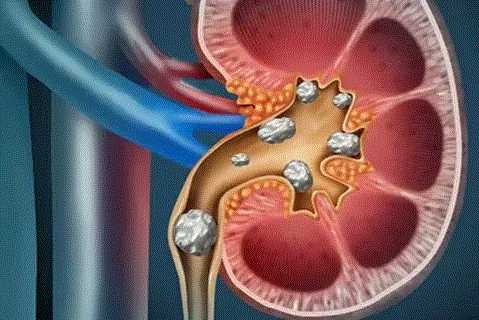
How To Prevent Kidney Stones: A Comprehensive Guide

Kidney stones are a painful and bothersome condition that affects many individuals around the world. They can cause excruciating pain, discomfort, and even lead to serious health complications. Understanding how to avoid kidney stones is crucial for maintaining good health and well-being. In this comprehensive guide, we will delve into the causes, risk factors, and, most importantly, the preventive measures you can take to keep kidney stones at bay.
What Are Kidney Stones?
Kidney stones, also known as renal calculi, are hard deposits of minerals and salts that form in your kidneys. These stones can range in size from a tiny grain of sand to a larger pebble. They are caused by a build-up of certain substances in your urine, which can crystallize and clump together to form stones. Kidney stones can cause severe pain when they pass through your urinary tract, and they may lead to various complications if not addressed promptly.
Common Types of Kidney Stones
1. Calcium Oxalate Stones: These are the most common type of kidney stones and are primarily formed from calcium and oxalate, a natural compound found in many foods.
2. Struvite Stones: Struvite stones are often the result of urinary tract infections. They can grow quickly and become quite large.
3. Uric Acid Stones: Uric acid stones are formed when the urine is too acidic, which can be caused by a diet high in purines or certain medical conditions.
4. Cystine Stones: Cystine stones are rare and result from a hereditary disorder that causes the kidneys to excrete too much of certain amino acids.
Causes and Risk Factors
Understanding the causes and risk factors associated with kidney stones is the first step in preventing them. Some of the key factors include:
- Diet: A diet high in sodium, protein, and oxalate-rich foods can increase the risk of kidney stones.
- Dehydration: Insufficient water intake can lead to concentrated urine, making it easier for kidney stones to form.
- Family History: If someone in your family has a history of kidney stones, you may be more susceptible to developing them.
- Obesity: Excess body weight can lead to changes in urinary patterns, making it more likely for kidney stones to form.
- Certain Medical Conditions: Conditions such as urinary tract infections, inflammatory bowel disease, and gout can increase the likelihood of kidney stones.
Preventive Measures
Now that we understand the factors that contribute to kidney stone formation, let's explore effective preventive measures:
1. Stay Hydrated
Proper hydration is key to preventing kidney stones. Aim to drink at least 8-10 glasses of water a day. Staying well-hydrated dilutes the concentration of minerals in your urine, reducing the risk of stone formation.
2. Balanced Diet
Maintaining a balanced diet is crucial. Limit your intake of high-oxalate foods, such as spinach, beets, and nuts. Reduce sodium and protein consumption, and focus on a diet rich in fruits and vegetables.
3. Monitor Your Calcium Intake
Contrary to popular belief, adequate calcium intake can actually prevent kidney stones. Ensure you get your calcium from dietary sources rather than supplements, as excessive calcium supplementation can lead to stone formation.
4. Control Your Weight
If you're overweight, losing those extra pounds can significantly reduce your risk of kidney stones. A healthy body weight promotes balanced urinary function.
5. Limit Caffeine and Alcohol
Excessive consumption of caffeine and alcohol can lead to dehydration, so it's best to moderate your intake of these beverages.
6. Medication and Supplements
If you have a history of kidney stones or are at a higher risk, your healthcare provider may recommend medications or supplements to prevent stone formation. Follow their guidance closely.
7. Regular Medical Check-ups
Periodic check-ups with your healthcare provider can help identify early signs of kidney stones. They can provide guidance and make necessary dietary and lifestyle recommendations.
8. Maintain a Healthy Lifestyle
Incorporate regular physical activity into your routine, as it can help maintain overall health and reduce the risk of obesity, which is a risk factor for kidney stones.
To know more about Signs that you may have Kidney Disease, visit our website: https://www.ssurocare.com/
Conclusion
Kidney stones are a painful and often recurring condition, but with the right preventative measures, you can significantly reduce your risk. By staying well-hydrated, maintaining a balanced diet, controlling your weight, and following your healthcare provider's recommendations, you can enjoy a kidney stone-free life.
Remember, prevention is always better than cure. Taking proactive steps to prevent kidney stones can save you from the agony and discomfort they bring. Prioritize your health, follow these guidelines, and live a life free from the burden of kidney stones.
Author Bio
Article Comments
No Comments!
At present there are zero comments on this article.
Why not be the first to make a comment?
Similar Articles
Search Pages
User Upgrade
account to full use of editor,
Including hyperlinks
Article Categories
There are zero sub-categories in this parent category.
There are zero sub-categories in this parent category.

















